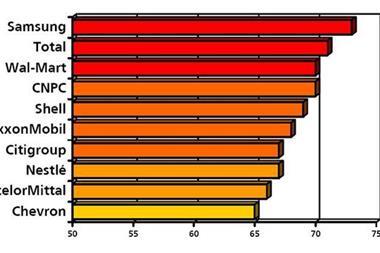The international organisation demanded the UK adopt proper anti-bribery laws
Britain has once again come under fire for its lax anti-bribery laws.
The OECD’s Working Group on Bribery sharply criticised the UK’s failure to bring its anti-bribery laws into line with international and urged the rapid introduction of new legislation.
Current UK legislation makes it very difficult for prosecutors to bring an effective case against a company for alleged bribery offenses, said the Paris based organisation.
Although the UK ratified the OECD Anti-Bribery Convention 10 years ago, it has so far failed to successfully prosecute any bribery case against a company.
The OECD anti-bribery working group said it was ‘disappointed and seriously concerned’ about the UK’s continued failure to address deficiencies in its laws on bribery of foreign public officials and on corporate liability for foreign bribery.
The group has asked the UK to provide quarterly reports on its legal progress to meet the recommendations.
It warned that uncertainty over the UK’s legal framework could trigger increased due diligence over UK companies by their commercial partners.
The working group did acknowledge some positive aspects in the UK’s fight against foreign bribery, including the allocation of significant financial resources and nation-wide jurisdiction to a specialised unit of the City of London Police.
It also noted the UK’s first conviction of an individual in September 2008 for foreign bribery in international business transactions and its recent anti-corruption strategy to improve and strengthen the UK’s law and structures to tackle foreign bribery.
But it emphasised that reforms are urgently needed and should be dealt with as a matter of political priority. Recent cases have also highlighted systemic deficiencies that make clear the need to safeguard the independence of the Serious Fraud Office and eliminate unnecessary obstacles to prosecution.
The working group made similar recommendations in 2003, 2005 and 2007.
In 2005 it also expressed strong regret over uncertainty about the UK’s commitment to establishing an effective corporate liability regime.



















